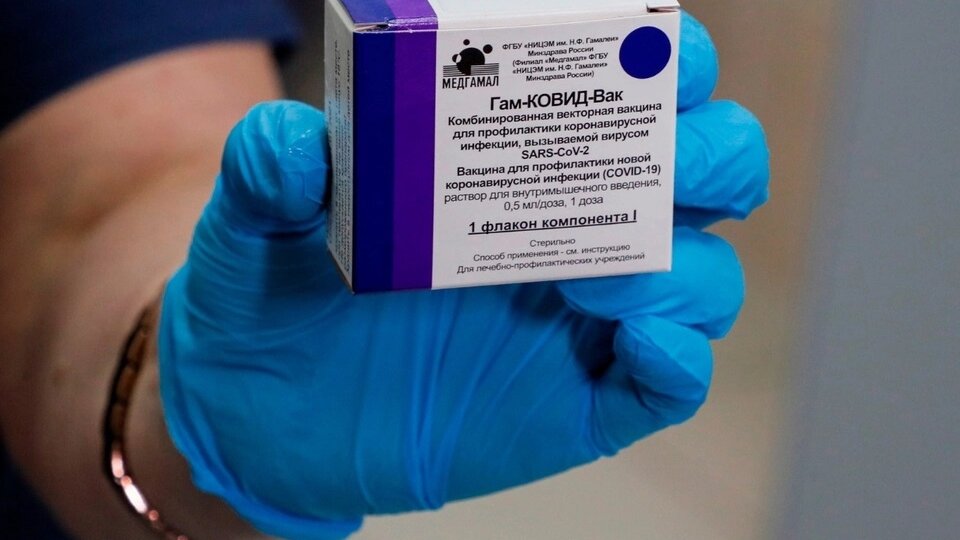
[ad_1]
Russian vaccine Sputnik V against the coronavirus, whose acquisition is negotiated with Moscow by the Argentine government, obtained 92% effectiveness in phase 3 studies in humans according to the first results of these tests and did not register “unexpected side effects”, as reported this morning via the official Twitter account of the test. The news comes after the American laboratory Pfizer announced that its vaccine was 90% effective in tests.
“The effectiveness of the Sputnik vaccine reached 92% (calculation based on the 20 confirmed cases of Covid-19 divided between those vaccinated and those who received the placebo)”, was indicated in the @sputnikvaccine account, in information also reproduced by the Russian news agency Sputnik.
The publication argued that “The effectiveness was demonstrated on the basis of a first interim analysis obtained 21 days after the first injection” and stated that “there were no unexpected side effects during the testing”.
“Currently, 40,000 volunteers are participating in phase 3 clinical trials, double-blind, randomized and placebo-controlled, of whom more than 20,000 were vaccinated with the first dose of the vaccine and more than 16,000 with the first and second doses of the vaccine, ”it was reported.
“Mass vaccination” in weeks
Alexander Gintsburg, director of the Gamaleya Center, said that due to the effectiveness of the Sputnik V vaccine against the coronavirus, mass vaccination can begin in a few weeks in Russia, and then in the rest of the world.
“The publication of interim results from post-registration clinical trials that convincingly demonstrate the efficacy of the Sputnik V vaccine, which gives way to mass vaccination in Russia against Covid-19 in the coming weeks “, Gintsburg announced.
“Thanks to the increase in production at the new manufacturing sites, the Sputnik V vaccine will soon be available for a wider population. This will break the current trend and lead to a possible drop in Covid-19 infection rates, first in Russia and then globally, ”he concluded.
How the Russian vaccine works
The Gamaleya National Research Center for Epidemiology and Microbiology of Russia is in charge of the development of this vaccine uses a technology called a “non-replicating viral vector”.
Vectors These are viruses that do not have the ability to reproduce in the body (and are therefore harmless) and they are used to transport the genetic material of the virus to be immunized.
Unlike others who use this technology, Sputnik V is the only one to use two human adenoviruses as vectors, a different dose for each dose administered intramuscularly with a difference of 21 days.
The vaccine was registered by the Russian government in August and is in phase 3 with testing on more than 40,000 volunteers in Russia, but clinical trials have also been announced in the United Arab Emirates, India, Venezuela and Belarus.
Sputnik V in Argentina
As announced last week, the Argentine government has agreed to the possibility of the country receiving 25 million doses of Sputnik V, 10 of which could arrive in December at an estimated price per program (two doses) of $ 19.95 in total.
After some sectors of the opposition questioned the acquisition of the Russian vaccine, the Secretary of Access to Health, Carla Vizzotti, specified that the Sputnik V It is in phase 3 and “cannot be applied before the end of the tests” and insisted: “It is only when ANMAT declares itself safe that it will take the next step, the implementation strategy.”
“Russian vaccine is one of the most advanced, it has already been used in the Ebola virus platform and in other diseasess. So far, it has not generated any alert regarding adverse effects, ”said the official.
.
[ad_2]
Source link
 Naaju Breaking News, Live Updates, Latest Headlines, Viral News, Top Stories, Trending Topics, Videos
Naaju Breaking News, Live Updates, Latest Headlines, Viral News, Top Stories, Trending Topics, Videos